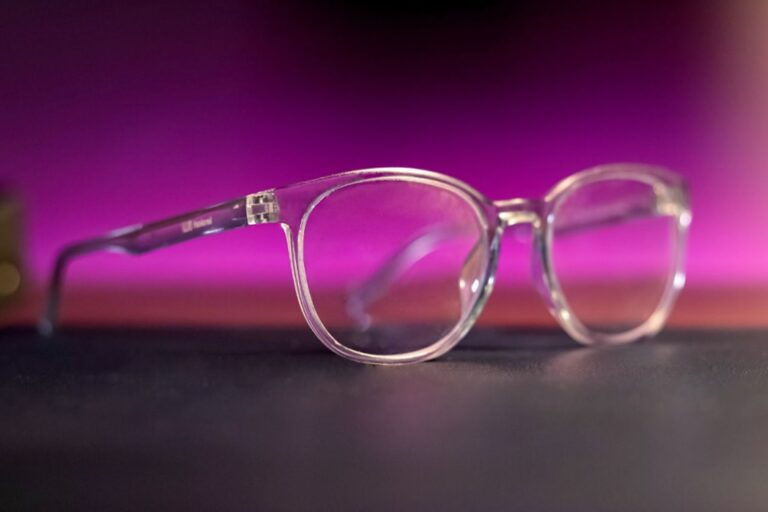Who doesn’t love a good myth-buster, particularly when it comes to topics that matter, like our eye health? From questions about wearing glasses causing dependency to the belief that reading in dim light can damage your eyes, many of us are confused about what’s real and what’s not. Today, we will debunk five common myths surrounding eyeglasses and eye health. Let’s set the record straight before you buy your next pair of glasses online.
Myth 1: Wearing Glasses Makes Your Eyesight Worse
One of the most common myths is that wearing glasses weakens your eyes, causing a reliance on them. However, this is a misinterpretation of what’s happening. When you start wearing glasses, your brain adjusts to the clearer image it sees. If you remove them, the world looks blurrier than you remember, leading to the misconception that glasses make your vision worse.
In reality, glasses are simply aiding your eyes to focus light correctly onto the retina. They do not alter the structure of your eyes, so they don’t weaken your vision or cause dependence. If you feel your eyesight is deteriorating despite wearing glasses, it’s more likely that your prescription needs adjusting or your eye condition is progressing, not the result of wearing glasses.
Myth 2: Reading In Dim Light Damages Your Eyes
This myth likely originated from the discomfort experienced when reading in poor lighting. Doing so causes eye strain, leading to symptoms like dryness, itchiness, and tiredness. But it’s important to understand that these are temporary issues, and there’s no scientific evidence to suggest that reading in dim light causes long-term damage to your eyes.
Though it doesn’t cause damage, reading under good light will make the experience more comfortable and enjoyable. Adequate lighting reduces the stress on your eyes, ensuring you can enjoy your favourite book without unnecessary strain.
Myth 3: Sitting Too Close To The TV Is Bad For Your Eyes
Much like the previous myth, this one likely comes from misunderstandings about eye strain. Sitting close to a television or staring at a computer screen for extended periods can cause eye strain, dryness, and fatigue but not permanent damage. The myth may also be a vestige from when TVs emitted harmful radiation levels – an issue modern screens don’t have.
However, implementing the 20-20-20 rule can alleviate these temporary discomforts. Every 20 minutes, look at something 20 feet away for 20 seconds. This simple practice can reduce digital eye strain significantly.
Myth 4: Only Elderly People Need Regular Eye Examinations
Some people believe that unless they’re elderly or have a noticeable issue with their vision, they don’t need regular eye exams. But eye exams are not just for those who need glasses or older adults. They’re essential for detecting early stages of eye diseases, some of which can be asymptomatic until they’re advanced.
Regular eye examinations, typically every one to two years, can help detect conditions like glaucoma or macular degeneration early. Early detection significantly improves the chances of successful treatment or management.
Myth 5: Eating Carrots Will Improve Your Eyesight
The idea that eating carrots improves vision is a myth that dates back to World War II propaganda. While it’s true that carrots are rich in vitamin A, a nutrient essential for good eye health, a balanced diet is more important for overall eye health. Eating a diet rich in various fruits and vegetables, particularly dark leafy greens, provides the nutrients necessary for maintaining healthy eyes.
While vitamin A deficiency can cause night blindness, an average Western diet typically provides an adequate amount of vitamin A, making the extra consumption of carrots for improved eyesight unnecessary.
Conclusion
As we can see, not everything we hear about eyeglasses and eye health holds water. While glasses are crucial aids for many, they don’t cause dependency. Reading in dim light or sitting close to screens can cause discomfort but not permanent damage. Regular eye examinations are important regardless of age; a balanced diet is key to maintaining good eye health.
We hope to encourage a more comprehensive understanding of eye health by debunking these myths. So the next time you’re looking to buy glasses online, you’re equipped with accurate information to make the best choices for your eye health. Remember, when it comes to your eyes, it’s always better to be informed than to be led by myths.


